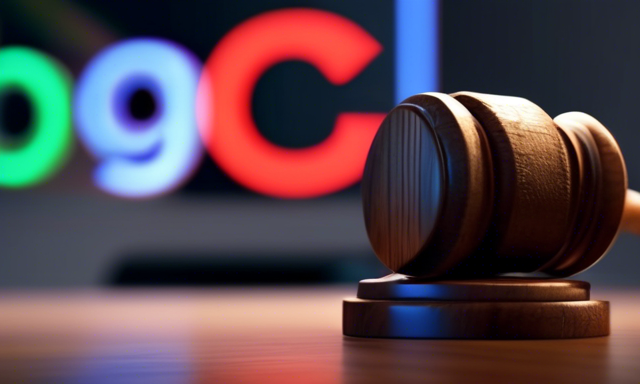Legal Battles and Outcomes: A Look at Google’s Recent History 🚀
Delve into the significant legal challenges faced by Google over the years. Various court cases have tested Google’s business practices and protections under copyright laws. The outcomes of these notable legal disputes highlight how courts have interpreted issues around fair use and antitrust laws. Google’s experiences illuminate the complexities of operating within tech regulations, especially as they navigate the evolving digital landscape.
The Oracle Case: Google’s Landmark Legal Victory ⚖️
The showdown between Google and Oracle kicked off in 2010 when Oracle accused Google of unlawfully using its coding language in the development of the Android operating system. This legal battle stretched across more than a decade, capturing attention as two giants in the tech world faced off in court.
After navigating various legal channels, the dispute culminated in a decisive ruling from the Supreme Court three years ago. In a 6-2 vote, the justices ruled that Google’s use of Oracle’s code fell under the doctrine of fair use, thereby protecting Google from allegations of copyright infringement.
The Authors Guild vs. Google: A Fair Use Triumph 📚
Another significant case arose in 2004 when Google embarked on a project to digitize over 20 million books, providing users access to extensive literary resources through Google Books. This ambitious undertaking was met with resistance from the Authors Guild, who filed a lawsuit in 2005 alleging that Google’s project constituted mass copyright infringement.
The legal battle wrapped up in 2016, with the Supreme Court ruling in favor of Google, reaffirming the project as a fair use of the authors’ works and allowing Google Books to thrive.
Viacom’s Challenge Against YouTube: The Settlement 🎥
Viacom targeted YouTube in 2007 with a lawsuit over alleged copyright violations, claiming that content from its channels, like MTV and Comedy Central, was being uploaded without permission. This case raised crucial questions about the responsibility of video-sharing platforms concerning user-uploaded content.
After a lengthy period of negotiation, both parties reached a settlement after seven years, obligating YouTube and Viacom to collaborate more effectively moving forward.
Gonzalez vs. Google: An Ongoing Legal Issue ⚠️
Another notable case involves the family of Nohemi Gonzalez, a student who lost her life during a terrorist attack in Paris in 2015. They sued Google, claiming that YouTube’s algorithm promoted content that spread extremist ideologies, which contributed to their daughter’s death.
Last year, the Supreme Court found insufficient grounds to hold Google accountable, returning the case to a lower court, highlighting continuing complications in determining liability for user-generated content.
Epic Games vs. Google: A Legal Setback for Google 🎮
In a significant antitrust case, Epic Games accused Google of using anti-competitive practices in its Play Store. The jury’s verdict in December delivered an unfavorable ruling for Google, confirming that its policies stifled competition and limited opportunities for game developers like Epic.
This outcome signifies a growing scrutiny on Google’s operational conduct, pushing the company to rethink its approach to developers and competition in the mobile app marketplace.
European Antitrust Cases: Struggles Across the Pond 🇪🇺
Google’s legal issues extend beyond U.S. courts, where it has faced a series of antitrust investigations in Europe. The European authorities have ruled against Google in three distinct cases, alleging that the tech giant utilized unfair practices to gain an advantage in areas such as its Android operating system and advertising services.
Consequently, Google has incurred fines exceeding 8 billion euros (around $8.7 billion), illustrating the stark contrast between its outcomes in U.S. courts versus the European judicial landscape.
Implications and Future Considerations 📈
Google’s journey through these legal challenges underscores the complexities of navigating copyright and competition laws in an increasingly digital world. As the tech landscape continues to evolve, the outcomes of these legal battles could set significant precedents affecting the industry at large. Ongoing scrutiny from both U.S. and European regulators suggests that Google, and other tech companies, must strategically address compliance and competition ethics to maintain their market positions.
By understanding the implications of these legal processes, tech companies can better prepare for the future challenges that may come as regulations adapt to the dynamic nature of the digital economy.





 By
By
 By
By
 By
By

 By
By